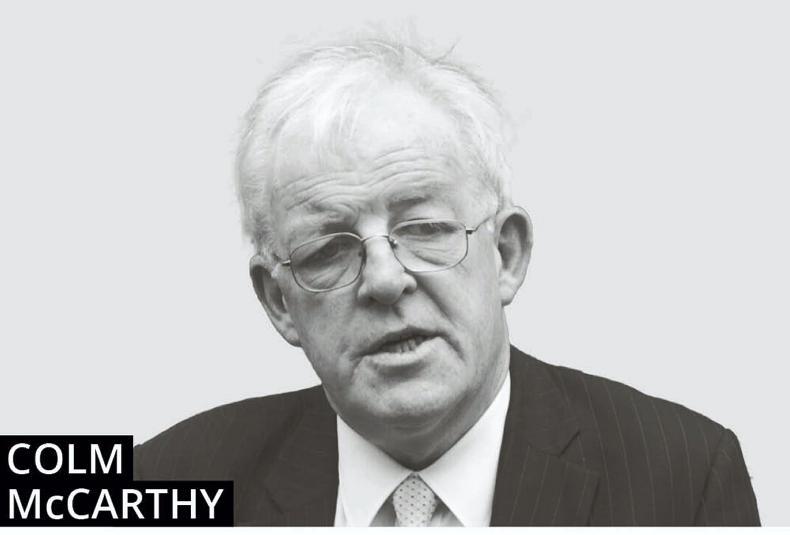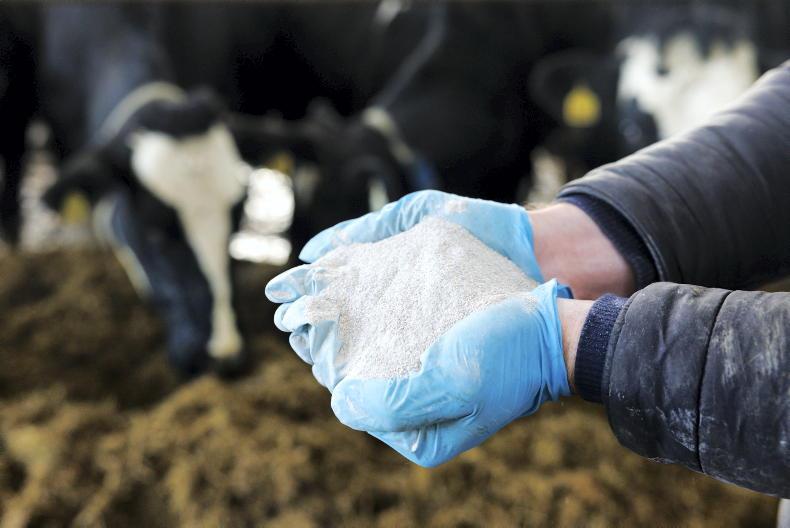Continuing threats from Brexit have featured only sporadically in the general election campaign, but they will dominate the agenda of the next government. On Monday, the first working day following the UK’s legal exit, the European Commission released a detailed 33-page document outlining its negotiating priorities. This now goes to the member states for consideration, with a view to the commencement of negotiations for a free trade agreement in March.
The UK has yet to produce any draft negotiating scheme and has foreshortened the time available to just 11 months, through ruling out any extension to the transition period. The clock is ticking again, with a possible no-deal outcome (no free trade agreement) by the end of December next.
Free trade
Instead, just as Michel Barnier’s press conference was concluding in Brussels, Boris Johnson made a speech at the Naval College in Greenwich, whence emerged the admirals who patrolled the seven seas when Britain’s international trading arrangements enjoyed the support of the Royal Navy.
The choice of venue has become part of the rhetoric. Johnson, who led the Leave campaign in the 2016 referendum and took Britain out of the largest free trade bloc in the world last Friday, delivered a speech on, of all things, the virtues of free trade. “I am here to warn you that free trade is being choked,” he intoned. The Brexiteer press duly reported that Barnier’s comments threatened the imposition, by the EU, of trade barriers on Britain from January next year and that Johnson had rebuked him.
The clock is ticking again, with a possible no-deal outcome (no free trade agreement) by the end of December next
After three and a half years of intense debate since the referendum, it is just about possible that the mainstream British media are still confused about the consequences of leaving the EU, but it is not credible that Johnson is misinformed. There will be no new trade barriers against Britain, just the same ones that apply to all the other non-members, unless something superior is negotiated. The status of non-membership was chosen by the UK political system – the UK has not been expelled from the EU, it has decided to quit.
Since the Leave campaign was built around the notion that there would be no adverse economic consequences, the pretence must now be maintained that any barriers that might arise are the fault of the European Union and not of Brexit’s principal architect.
Blame game
Barnier’s 33-page document is largely a repetition of points made earlier during the negotiation of the withdrawal agreement. The grant by the EU of preferential trade access to non-members depends on the successful negotiation of a free trade agreement, which avoids barriers that are otherwise automatic if the parties fail to agree. The EU will not agree (there is no such thing as unilateral agreement, even for the UK) unless Britain binds itself to a level playing field, a regulatory regime comparable to that on the other side of the channel and again, Johnson has formally declined to do this, in very explicit terms.
It is just about possible that the mainstream British media are still confused about the consequences of leaving the EU, but it is not credible that Johnson is misinformed
If there is a coherent strategy behind Monday’s speech at Greenwich and supporting statements from ministers, it is bad news for the next Irish government.
Is Johnson putting down markers for the blame game should there be a no-deal outcome by end of 2020? No-deal means tariffs, quotas, customs delays, SPS checks and the worst possible result for Irish business, including farming and food processing.
Trade
The best interpretation is that Johnson is playing to the domestic Europhobic audience, or just building a tough-guy stance before the talks commence, creating threats to facilitate concessions later. But the threats are empty and his behaviour is also consistent with the pursuit of the inevitable endgame, a no-deal outcome, where Britain has only the same EU market access as a third-country.
The same would apply in reverse, which would mean huge disruption to Ireland’s east-west trade. Cross-border trade is protected because of the withdrawal agreement, already international law, but Northern Ireland’s east-west trade would also be disrupted.
The atmosphere has been poisoned and there is unlikely to be any trust between the parties when the talks get under way
The political declaration has advisory status only, but it contained clear commitments to level playing field provisions. In effect, Johnson has abandoned the non-binding political declaration on which the ink is barely dry.
As a result, the atmosphere has been poisoned and there is unlikely to be any trust between the parties when the talks get under way. The Greenwich strategy makes little sense, if the UK government’s objective is any formula which delivers a ‘soft’ Brexit. A hard Brexit does more damage to Ireland than to any other member in the EU-27 and would have created chaos on the Irish border.
At least that nightmare has been avoided, but the incoming government will be preoccupied with the broader economic fall-out. If Johnson has doubled down, this underlines the unreality of auction politics and makes the election campaign look even sillier.
Read more
EU gives recommendations on UK partnership negotiations
Barnier blunt on Brexit checks
Continuing threats from Brexit have featured only sporadically in the general election campaign, but they will dominate the agenda of the next government. On Monday, the first working day following the UK’s legal exit, the European Commission released a detailed 33-page document outlining its negotiating priorities. This now goes to the member states for consideration, with a view to the commencement of negotiations for a free trade agreement in March.
The UK has yet to produce any draft negotiating scheme and has foreshortened the time available to just 11 months, through ruling out any extension to the transition period. The clock is ticking again, with a possible no-deal outcome (no free trade agreement) by the end of December next.
Free trade
Instead, just as Michel Barnier’s press conference was concluding in Brussels, Boris Johnson made a speech at the Naval College in Greenwich, whence emerged the admirals who patrolled the seven seas when Britain’s international trading arrangements enjoyed the support of the Royal Navy.
The choice of venue has become part of the rhetoric. Johnson, who led the Leave campaign in the 2016 referendum and took Britain out of the largest free trade bloc in the world last Friday, delivered a speech on, of all things, the virtues of free trade. “I am here to warn you that free trade is being choked,” he intoned. The Brexiteer press duly reported that Barnier’s comments threatened the imposition, by the EU, of trade barriers on Britain from January next year and that Johnson had rebuked him.
The clock is ticking again, with a possible no-deal outcome (no free trade agreement) by the end of December next
After three and a half years of intense debate since the referendum, it is just about possible that the mainstream British media are still confused about the consequences of leaving the EU, but it is not credible that Johnson is misinformed. There will be no new trade barriers against Britain, just the same ones that apply to all the other non-members, unless something superior is negotiated. The status of non-membership was chosen by the UK political system – the UK has not been expelled from the EU, it has decided to quit.
Since the Leave campaign was built around the notion that there would be no adverse economic consequences, the pretence must now be maintained that any barriers that might arise are the fault of the European Union and not of Brexit’s principal architect.
Blame game
Barnier’s 33-page document is largely a repetition of points made earlier during the negotiation of the withdrawal agreement. The grant by the EU of preferential trade access to non-members depends on the successful negotiation of a free trade agreement, which avoids barriers that are otherwise automatic if the parties fail to agree. The EU will not agree (there is no such thing as unilateral agreement, even for the UK) unless Britain binds itself to a level playing field, a regulatory regime comparable to that on the other side of the channel and again, Johnson has formally declined to do this, in very explicit terms.
It is just about possible that the mainstream British media are still confused about the consequences of leaving the EU, but it is not credible that Johnson is misinformed
If there is a coherent strategy behind Monday’s speech at Greenwich and supporting statements from ministers, it is bad news for the next Irish government.
Is Johnson putting down markers for the blame game should there be a no-deal outcome by end of 2020? No-deal means tariffs, quotas, customs delays, SPS checks and the worst possible result for Irish business, including farming and food processing.
Trade
The best interpretation is that Johnson is playing to the domestic Europhobic audience, or just building a tough-guy stance before the talks commence, creating threats to facilitate concessions later. But the threats are empty and his behaviour is also consistent with the pursuit of the inevitable endgame, a no-deal outcome, where Britain has only the same EU market access as a third-country.
The same would apply in reverse, which would mean huge disruption to Ireland’s east-west trade. Cross-border trade is protected because of the withdrawal agreement, already international law, but Northern Ireland’s east-west trade would also be disrupted.
The atmosphere has been poisoned and there is unlikely to be any trust between the parties when the talks get under way
The political declaration has advisory status only, but it contained clear commitments to level playing field provisions. In effect, Johnson has abandoned the non-binding political declaration on which the ink is barely dry.
As a result, the atmosphere has been poisoned and there is unlikely to be any trust between the parties when the talks get under way. The Greenwich strategy makes little sense, if the UK government’s objective is any formula which delivers a ‘soft’ Brexit. A hard Brexit does more damage to Ireland than to any other member in the EU-27 and would have created chaos on the Irish border.
At least that nightmare has been avoided, but the incoming government will be preoccupied with the broader economic fall-out. If Johnson has doubled down, this underlines the unreality of auction politics and makes the election campaign look even sillier.
Read more
EU gives recommendations on UK partnership negotiations
Barnier blunt on Brexit checks










SHARING OPTIONS